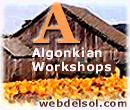|
WHAT OUR PAST ATTENDEES HAVE TO SAY
The following are interviews and commentary by former attendees at the Algonkian Writer Conferences and the NYC Pitch and Shop.
Julie Kaewert (author)
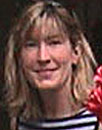 Because I was changing agents, I knew it was important to learn how to package it effectively for prospective agents and publishers. When I saw the Algonkian pitch conference on the website, it looked like just the thing…and it was. In fact, it far exceeded my expectations in every way. [more] Because I was changing agents, I knew it was important to learn how to package it effectively for prospective agents and publishers. When I saw the Algonkian pitch conference on the website, it looked like just the thing…and it was. In fact, it far exceeded my expectations in every way. [more] |
Kate Gallison (author)
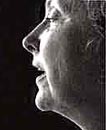 One way to lengthen your life is to stretch it backwards, and so I read a lot of history. Early movies fascinate me. They were both like and unlike stage plays of the time, borrowing actors and melodramatic plots, but developing entirely new techniques for portraying dramatic action. What was shown in them was both like and unlike the way people really lived. [more] One way to lengthen your life is to stretch it backwards, and so I read a lot of history. Early movies fascinate me. They were both like and unlike stage plays of the time, borrowing actors and melodramatic plots, but developing entirely new techniques for portraying dramatic action. What was shown in them was both like and unlike the way people really lived. [more] |
Greg Haas (campaign consultant)
 I felt I could tell a story about how the process works. Fiction gave me a chance to go where non-fiction wouldn’t let me…inside people at both ends of the political food chains heads. The final inspiration came from a strange place Karl Rove spent a great deal of time in Ohio between 2001-04. [more] I felt I could tell a story about how the process works. Fiction gave me a chance to go where non-fiction wouldn’t let me…inside people at both ends of the political food chains heads. The final inspiration came from a strange place Karl Rove spent a great deal of time in Ohio between 2001-04. [more] |
Candy Somoza (English professor)
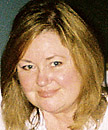 The preparation work got us thinking about the book in the book store, how it got there, what makes it sell. While we read works and studied the writing, we also focused on the outside of the book, so to speak, the marketing, and that was essential to prepare us for the work we had to do. [more] The preparation work got us thinking about the book in the book store, how it got there, what makes it sell. While we read works and studied the writing, we also focused on the outside of the book, so to speak, the marketing, and that was essential to prepare us for the work we had to do. [more] |
Rae Bryant (former teacher)
 After completing the first draft of Ficklestick's , I wanted professional guidance and a community of writers to help me marinate the work. It was important to me as a first time novelist to seek feedback before finalizing the intricacies. By retaining a sense of early process malleability, I was able to really hear criticisms and then incorporate skills learned. Algonkian provided the perfect setting. [more] After completing the first draft of Ficklestick's , I wanted professional guidance and a community of writers to help me marinate the work. It was important to me as a first time novelist to seek feedback before finalizing the intricacies. By retaining a sense of early process malleability, I was able to really hear criticisms and then incorporate skills learned. Algonkian provided the perfect setting. [more] |
Alex Keto (former White House correspondent)
 I've been to handful of other conferences and decided that if you find yourself in a large room with someone almost out of eyesight in the front talking at you, the results are what you would expect: generic advice that doesn't really help. [more] I've been to handful of other conferences and decided that if you find yourself in a large room with someone almost out of eyesight in the front talking at you, the results are what you would expect: generic advice that doesn't really help. [more] |
Barbara Marquart (attorney)
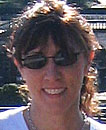 I also wanted to tell a story that celebrates the deep bond between mothers and daughters - the struggles we all face to transcend our circumstances, forgive each other's failures and accept each other's limitations in order to find peace. [more] I also wanted to tell a story that celebrates the deep bond between mothers and daughters - the struggles we all face to transcend our circumstances, forgive each other's failures and accept each other's limitations in order to find peace. [more] |
Thierry Sagnier (author)
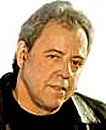 was stuck, hadn't done any serious writing for months, and a friend of mine—also a writer—suggested I attend a workshop to kickstart me. So I looked on the net and found that there were quite a few places that offered what I wanted, but when I researched the Algonkian conference, I recognized the name of a reporter I really respect. He'd been there and was highly complimentary, so that sealed it for me. [more] was stuck, hadn't done any serious writing for months, and a friend of mine—also a writer—suggested I attend a workshop to kickstart me. So I looked on the net and found that there were quite a few places that offered what I wanted, but when I researched the Algonkian conference, I recognized the name of a reporter I really respect. He'd been there and was highly complimentary, so that sealed it for me. [more] |
MORE COMMENTS
Some encouraging news since my return from our workshop, I've managed to garner a blast of new agent interest in reading my manuscript, a development I attribute to having fine-tuned my pitch there with you. The following agencies received my new pitch via email queries and are now reading the entire MS:
Levine Greenberg
The Rights Factory (Toronto)
Trident Media
Imprint Agency
Folio Literary
As to the chat forum, I did take some advice about smoothing out the first few pages, it can only help...but left my opening essentially as it was. I can see the value of mass response but a few of us are emailing each other with larger chunks of ms which answers my needs better right now.
Finally, the workshop was a good experience for me. I benefitted from hearing the refining process go on for others' work as well as my own. It was overall a great group of people and your own leadership was terrific.
Thanks again.
Victoria Costello
____________________________
Algonkian helped me develop a discipline around the creative process, enabling me to write with a clear intention to publish. It has been a year since the program and I continue to refer to the workshop material. From the story analyses I learned to examine my own work with rigor.
 Sheela Sukumaran, PEN USA Emerging Voices Fellow Sheela Sukumaran, PEN USA Emerging Voices Fellow
After spending a decade writing and promoting a series of six mystery novels, I was looking for a leg up to the next level of writing to embrace a challenging new novel. I was also looking for a new agent. When I heard about the Algonkian conferences, I jumped at the chance to hone my skills, work on the new project intensively for a week, and present to an agent.
But the conference more than surpassed—in fact, surpassed a hundred times over—the expectations I had for it. If anyone had suggested a writing conference could possibly make such a difference in my writing life and my career, I would never have believed it.
 Julie Kaewert, Random House Mystery Author Julie Kaewert, Random House Mystery Author
I'm a children's writer hoping to break into the historical novel market. The Algonkian Workshop surpassed every other conference I've been to. It wasn't "rah-rah" pep talks that do little more than leave an unpublished writer frustrated. It was four days of intensive, down-to-business training and face-to-face contact with agents and authors who told us what we really need to know--and do--to get published. And the agents invited us to send our book proposals to them, first. That's more than worth the price of admission.
 Kathryn Dahlstrom, Author of The Good News Club series Kathryn Dahlstrom, Author of The Good News Club series
Despite my many years as a journalist and non-fiction author, the transition into writing good fiction was difficult for me. Upon taking the Algonkian workshop, it all came into focus. For the first time, I am aware of the techniques and craft it takes to write a competitive manuscript.
 Dusko Doder, Author and Former Moscow Bureau Chief Dusko Doder, Author and Former Moscow Bureau Chief
 for the Washington Post for the Washington Post
Algonkian Workshops take one’s work to the next level. With an intimate, supportive, focused atmosphere and rigorous schedule, writers can set realistic goals and get projects to the place they need to be to take them to a wider market. As an agent, I appreciate that Algonkian writers have an established sense of what works and what doesn’t. Their projects are often a cut above the rest.
 Elise Capron, Literary Agent at Sandra Dijkstra Agency Elise Capron, Literary Agent at Sandra Dijkstra Agency
Algonkian Workshop is an intensive nuts and bolts primer in learning and examining the techniques of storytelling and dialogue. It gets the writer focused on the ingredients that bring a story or a novel to life. Of the six workshops I have done in the past four years, Algonkian is by far the best.
 Michael B. Miller, Translator, Virginia Michael B. Miller, Translator, Virginia
All writers - especially beginning writers - need a well-meaning mentor and editor to praise what they're doing right, point a finger at what they're doing wrong, provide them with the tools they need to fix the problems, and open their eyes to the art, craft, and business of writing. This is what I had done for countless nonfiction writers over the years in my job as a magazine editor. It's what I needed when I decided to start writing fiction. And it's why, after shopping around for a suitable fiction-writing workshop, I chose Algonkian.
 Diane Tonnessen, Editor-in-Chief, Pause Diane Tonnessen, Editor-in-Chief, Pause
The motto and approach, 'write from the heart, but smart,' is pure genius. If you're serious about writing and getting published, an Algonkian conference is the way to go.
 Peter Eichstaedt, Newspaper Journalist and Author of If You Poison Us Peter Eichstaedt, Newspaper Journalist and Author of If You Poison Us
I went to the Algonkian Novel Workshop with a mostly complete novel. We worked on issues particular to the novel form including drama theory,
plotting, structure, and character development. I returned home with many helpful notes, particularly about structural elements. Within six weeks, I
had a revised novel, and two weeks later, a literary agent.
 Stephanie Anagnoson, California Stephanie Anagnoson, California
The workshops at Algonkian are among the most rigorous and comprehensive of any I've seen, and that is exactly why the University of New Orleans chose Algonkian to supplement its low residency MFA program.
 William Lavendar, Director, UNO Low Residency MFA Program William Lavendar, Director, UNO Low Residency MFA Program
I have returned to writing after a 20 year hiatus. The Algonkian workshop was instrumental in helping me focus and clarify my characters and story. The small size of the workshop encouraged interaction between attendees and with the facilitator. We all got a lot of specific feedback on our work; the feedback was constructive and specific. I highly recommend the Algonkian Novel workshop for anyone looking for new insights on his/her work.
 Amy Roeder, California Amy Roeder, California
A copy of "Immersed in The Art of Fiction," a Reference, Guide, and Exercises for the Algonkian Novel Workshop, was given to each student. Mine has become my bible, and before each of my writing sessions I write one of the book's prose drills. When I get stuck, I use the book's PDQ guide. I never would have believed I could stay with a group of people, in a strange house, in the middle of the woods. But I did exactly that and loved every minute of it. We listened to each other, supported each other, and left the workshop knowing we'd be friends forever.
 Barbara Davis, Virginia Barbara Davis, Virginia
The Algonkian method looks to the great writers, so you're really learning from the best of the best -- Hemingway, Nabokov, Nathaniel West, Ionesco. There's a strong focus on structure, one of the hardest things for novel writers to learn and put into practice. You go home with excellent materials you can then mine further as you deepen your story.
 Cynthia Hartwig, Washington Cynthia Hartwig, Washington
It wasn't just about being immersed in a literary think tank looking at "timesim, narrative synergy, minims of suspense," that made the workshop so valuable, it was also the pre-workshop questions and the post-exercises from the workshop book, "Immersed in The Art of Fiction," that took it to a whole new level. Also, the small group made it more like a roundtable discussion of craft and ideas than a lecture.
 Charlene Logan, California Charlene Logan, California
I arrived at the Algonkian Novel Workshop with a manuscript that I thought was complete. After Michael Neff's teachings from his unique workbook, "Immersed in the Art of Fiction," however, I have learned so many skills and techniques that I now see my manuscript with "new eyes." I am reworking it entirely and have even discovered a new character, thanks to Michael's helpful suggestions. I would never have been able to transcend to this next level by working on my own. The Algonkian Novel Workshop is extraordinary. I recommend it to every aspiring novelist.
 Jane Barker, Virginia Jane Barker, Virginia
Finding a PITIABLE CHARACTERISTIC for my villain now makes him scarier than Hannibal Lector. In the past, I've approached theme pretty exclusively from the story element. I found the Algonkian approach to applying theme to character and plot deepened my overall story.
 Barbara Plum, California Barbara Plum, California
= TOP OF PAGE = |

